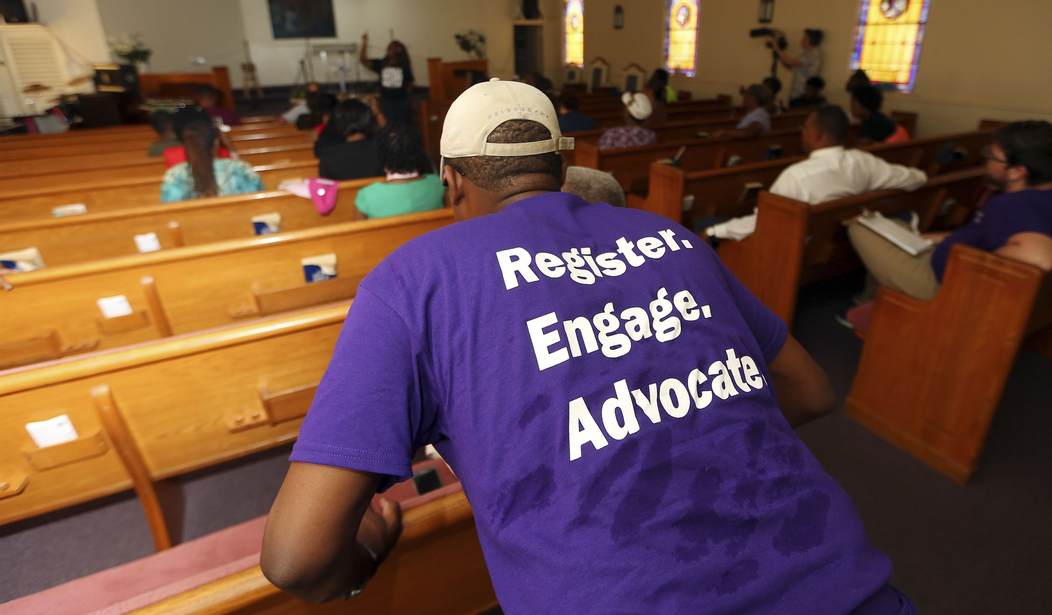A core Democratic Party constituency isn’t high on Joe Biden. It could become a significant issue, though Democratic operatives aren’t paying attention. This group has voted heavily Democratic for years, so why bother caring? This group of strategists has enough on their plate trying to kill narratives that Joe Biden isn’t too old to run in 2024. Yet, the fact that The New York Times’ Nate Cohn found five theories to explain this dip in support should at least cause concern among Democrats trying to shore up the flanks for an incumbent president that will start 2024 exceptionally weak.
Biden’s approval numbers are in the toilet, with high inflation still lingering, especially with working families. The ‘heading in the wrong direction’ figures are atrociously high, and yes—Biden’s age and increasing decrepitude is the first thing that comes to mind. Bidenomics, a messaging failure, doesn’t even register on the radar.
This sense of torpor in all aspects of governance has led to nonwhite voters not being incredibly receptive to another four years of Biden. Cohn listed five theories, some of which you’ve heard before, though kernels of truth buried in each one. The first is that Biden’s age has cast a lackluster cloud over the young cohorts of the base. With the economy stagnating, Cohn said that Democrats hammering abortion is their crutch for the moment, but this issue isn’t a hot button among younger nonwhite voters.
Is the party too far left? We know that’s the case, especially with progressives’ push to have hard-core pornography stashed in libraries, with other schools engaging in covert puberty blocker distribution and other gender-identity nonsense. There was a swing to the GOP from nonwhite voter groups, but Cohn asks if it hurt Biden.
“Even in 2020, the evidence that the progressive left was responsible for Democratic losses among Hispanic voters was more based on correlation than clear causal evidence,” he concluded. “Today, the connection seems even less clear. Perhaps the best evidence is Democratic struggles among nonwhite voters in California and New York, where progressive excesses might weigh most heavily.”
Recommended
Which brings us to the best explanations, those being Biden has done much, and Donald Trump’s brand of populism is appealing:
Democrats aren’t delivering a progressive agenda
This theory is brought to you by the progressive left. You might be skeptical after walking through the centrist position, but there’s a credible story here.
To understand it, it’s worth untangling two sentiments that we usually assume go together: a desire for big change and progressivism. They’ve gone hand-in-hand in recent Democratic primaries, with progressive candidates offering fundamental or revolutionary change, while liberal, establishment-backed candidates offer relative moderation, bipartisanship or a return to normalcy.
But being a moderate on a left-right ideological scale is not the same thing as being content with the status quo. Many moderates are deeply dissatisfied and want politicians who promise big changes to American life.
[…]
It seems doubtful that a more ambitious, progressive legislative agenda would have left Mr. Biden in a very different place. He didn’t seem to earn too much support for student debt forgiveness, for instance. But it’s still possible that the mainstream Democratic Party’s relatively conservative, even Whig-like, form of moderation leaves disaffected, nonwhite working-class voters feeling cold.
[…]
It’s Trump
It’s easy for Democrats to blame themselves for weakness among nonwhite voters. But what if it’s not really Democratic weakness, but Republican strength?
It’s Mr. Trump, not Mr. Biden, who defines American politics nowadays. Voters say they’re voting based on their feelings toward the former president, not the current one. With numbers like these, perhaps the default assumption ought to be that Mr. Trump, not Mr. Biden, is the driving force behind recent electoral trends.
If it’s Mr. Trump, it’s not hard to see how or why. He has a distinct brand with demonstrated appeal to white working-class voters who previously backed Barack Obama and other Democrats. Many elements of his message might have appeal to nonwhite working-class voters as well. As we’ve established, many persuadable nonwhite voters care about the economy; aren’t liberal; are dissatisfied with the country and mainstream politics; and desire fundamental change. Mr. Trump’s combination of populist economics and anti-establishment outsider politics is potentially a very good match.
What about Mr. Trump’s penchant to alienate Black and Hispanic voters with remarks like “very fine people on both sides” or “they’re rapists”? Today, some of these fights may be distant memories. And while Mr. Trump’s remarks may have hurt him at the time, it is striking that they didn’t do more to provoke a more obvious backlash among nonwhite voters, whether in terms of stronger turnout or greater Democratic support.
Perhaps other elements of his message might have broken through. His views on crime and immigration have considerable appeal to some Black and Hispanic voters, even though these issues are often seen by liberals as nothing more than a racist dog whistle. And Democrats may bristle at the thought of Mr. Trump as a criminal justice reformer, but he spent millions on a Super Bowl ad promoting exactly that. Mr. Trump’s economic appeal may also be newly salient with continuing perceptions that the economy hasn’t recovered.
As for theories about a “new generation,” Cohn doesn’t see much regarding red flags for Biden’s decline among this voter bloc. But an old president viewed as not doing much and presiding over an economic downturn will cause the ship to take on water, no matter who it is. And while Trump may not be personally popular, his policies are—which is the maddening paradox about the man and his takeover of the Republican Party. You can’t sell the Trump agenda, which most voters like, without turning them off because of his personality.
Then again, high inflation and an economic recession might cause voters to re-evaluate. It’s been noted for years by other data scientists, like David Shor, that nonwhite voters aren’t as ideologically rigid, especially on race issues, as their college-educated white counterparts, the latter of took over the Democratic Party in 2020. That could be another area where nonwhite voters feel turned off by the Biden 2024 re-election effort.

























Join the conversation as a VIP Member